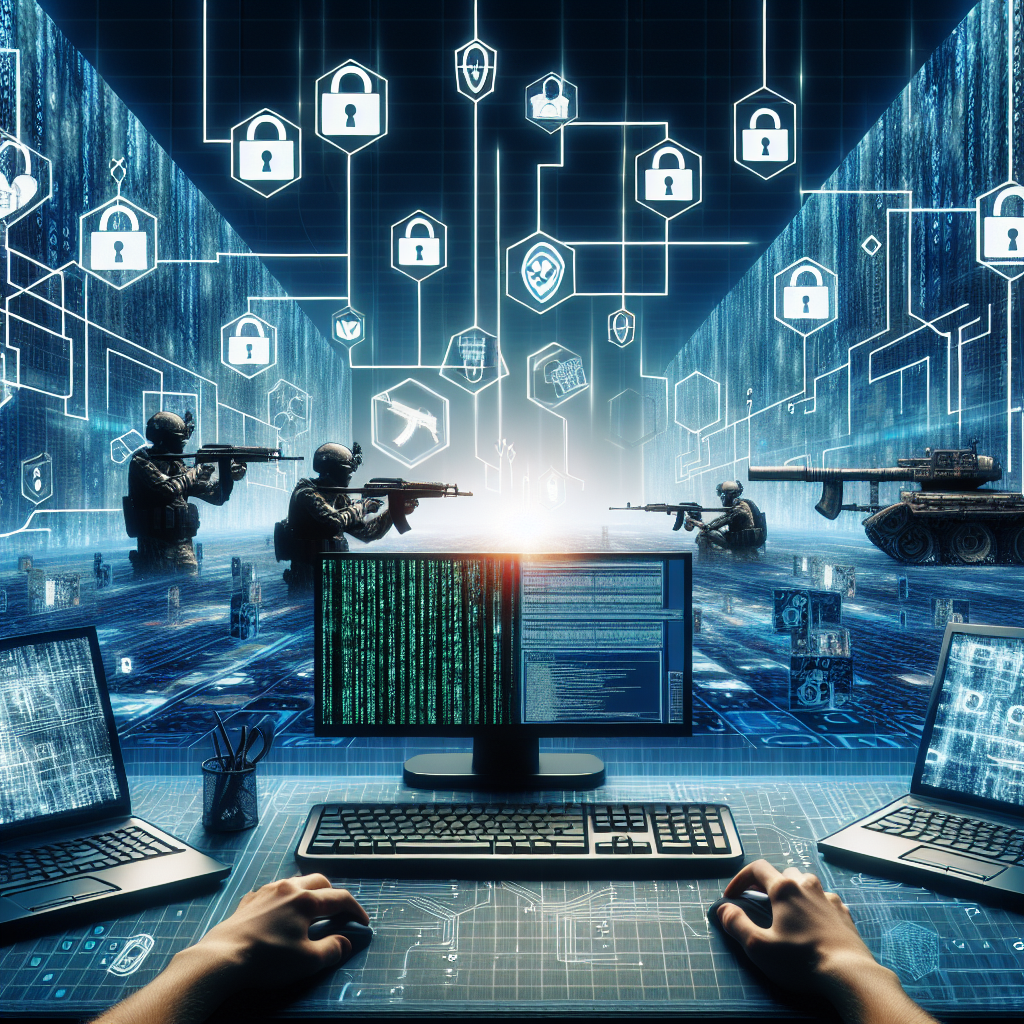Navigating the Invisible Battlefield: The Rise of Cyber Warfare in a Connected World
This article provides an in-depth analysis of the burgeoning realm of cyber warfare, delineating its evolution, key players, sophisticated tools, and consequential incidents, while highlighting the defense strategies and ethical considerations. It examines the economic impact and future trends in this digital theater, providing a call to action for enhanced cross-sector collaboration and advanced research to fortify global cyber resilience.

Introduction to Cyber Warfare
Defining Cyber Warfare
Cyber warfare refers to the use of digital attacks by nation-states or international organizations to attack and disrupt the activities of other states. This includes the strategic deployment of malware, cyberespionage, denial-of-service attacks, and other forms of digital sabotage to achieve political, military, or competitive advantage.
Evolution of Digital Conflict
The advent of the internet has transformed the landscape of modern warfare. Conflicts previously waged with kinetic military tools have increasingly migrated to the cyber realm, where geography and conventional might are less decisive than technical expertise and innovation.
The Landscape of Cyber Conflict
Key Actors in Cyber Warfare
Nation-States
Nation-states occupy a prominent position in cyber conflict, leveraging their intelligence and military apparatus to project power and protect national interests.
Non-State Actors and Cybercriminals
Non-state actors, including terrorist organizations and cybercriminal syndicates, exploit the connectivity of the digital world to conduct illicit activities and exert influence.
Private Sector Players
Corporations, both as victims and contractors, play crucial roles in the cyber warfare landscape, protecting their assets and, in some cases, collaborating with government agencies.
The Role of Cyber Intelligence Agencies
Intelligence agencies across the globe are engaged in the quiet battle for information superiority and cyber defense capabilities to shield national security.
International Law and Cyber Warfare Norms
Emerging international norms and legal frameworks are challenging to enforce in cyber space but are essential for establishing principles of governance.
"Cyber warfare reshapes how we understand international conflict and deterrence." - Dr. Sarah Kern, Cyber Defense Analyst
An Arsenal of Digital Weapons
Malware, Ransomware, and Viruses
These are the tools of disruption, with ransomware becoming increasingly utilized to extort funds and cripple critical systems.
Denial-of-Service (DoS) and Distributed Denial-of-Service (DDoS) Attacks
These attacks overload networks and disrupt services, imposing a modern form of siege.
Cyber Espionage and Data Breaches
The theft of sensitive information can shift the balance of power just as decisively as traditional espionage.
"The sophistication of today’s cyber threats requires a multi-layered security strategy." - Michael Fuentes, CISSP
Notable Cyber Warfare Incidents
Case Study: Stuxnet and Its Impact on Iran’s Nuclear Program
The deployment of Stuxnet, a sophisticated computer worm, notably disrupted Iran's nuclear centrifuges, marking a milestone in digital warfare history.
Analysis: Election Interference in the Digital Age
The integrity of democratic processes has been challenged by cyber operations aimed at influencing voter perceptions and outcomes.
Discussion: The SolarWinds Hack and Supply Chain Vulnerabilities
This extensive cyber espionage campaign highlighted the systemic risks inherent in the software supply chain, affecting thousands of organizations globally.
Defensive Strategies in Cyber Warfare
National Cyber Defense Initiatives
Governments worldwide are investing heavily to bolster their cyber defense capabilities through dedicated strategies and cybersecurity frameworks.
The Importance of Cyber Hygiene for Organizations and Individuals
Practicing good cyber hygiene is essential in mitigating risks and protecting against cyber attacks.
Future-Proofing: Advancements in Cryptography and Quantum Computing
Innovations in cryptography and the development of quantum computing promise to revolutionize cyber defense but also pose new challenges.
The Human Element
Cybersecurity Training and Awareness Programs
Human error remains a significant security vulnerability; thus, comprehensive training programs are imperative.
The Ethical Considerations of Cyber Warfare
Ethical debates arise over the indiscriminate nature of cyber attacks and their potential to harm civilians.
"Even in the digital realm, it is the human factor that often makes the critical difference." - Major Jason Brody, Cyber Operations Commander
Economic and Infrastructural Implications of Cyber Attacks
Sector-Specific Risks: Financial, Energy, and Healthcare
These industries face unique vulnerabilities and heightened stakes in the event of cyber intrusions.
The Cost of Cybersecurity: Balancing Defense and Investment
With the steep expenses involved in cybersecurity, organizations must strategically allocate resources to fortify their defenses without draining other critical functions.
"The cascading effects of cyber attacks on critical infrastructure can be devastating to national economies." - Prof. Elaine Douglas, Cyber Economic Analyst
The Future of Cyber Warfare
Predictive Analytics and AI in Threat Detection and Response
Emerging technologies such as AI and machine learning are becoming integral in identifying and countering sophisticated cyber threats.
The Escalation of Cyber Warfare and International Stability
The increasing frequency and severity of cyber attacks pose a challenge to global stability and international relations.
Regulation and the Path Forward in Cyber Deterrence
A consistent and collaborative international regulatory approach will be central to mitigating the threats posed by cyber warfare.
Conclusion: Strengthening Global Cyber Resilience
Outlining Key Takeaways from the Article
This article has navigated through the multifaceted domain of cyber warfare, emphasizing the complex interplay of technical, tactical, ethical, and strategic elements.
The Need for a Collective Response to Cyber Threats
Enhancing global cybersecurity necessitates converging efforts from governments, industries, academia, and civil society.
Call to Action: Fostering Professional Dialogue and Research
Encouragement for Cross-National Collaboration
Constructive dialogue and cooperation between nations are foundational to developing shared cyber norms and resilient infrastructures.
Advancing Cybersecurity Research and Education
Investing in cybersecurity research and education is critical to cultivate a skilled workforce capable of defending against evolving digital threats.
Partnering for a Secure Cyberspace
Public-private partnerships and international alliances are crucial to building a unified front against the rising tide of cyber warfare.
References
- Sarah Kern, Dr., "The New Deterrence: Cyber Doctrine in the Modern Age." Journal of Strategic Studies, 2023.
- Michael Fuentes, "Layered Security: Approaches for the Enterprise." InfoSec Magazine, 2022.
- Jason Brody, Major, "Human Factors in Cyber Operations." Military Cyber Affairs Journal, 2023.
- Elaine Douglas, Prof., "The Economics of Cybersecurity: Impact on National GDP." Global Cybersecurity Review, 2023.